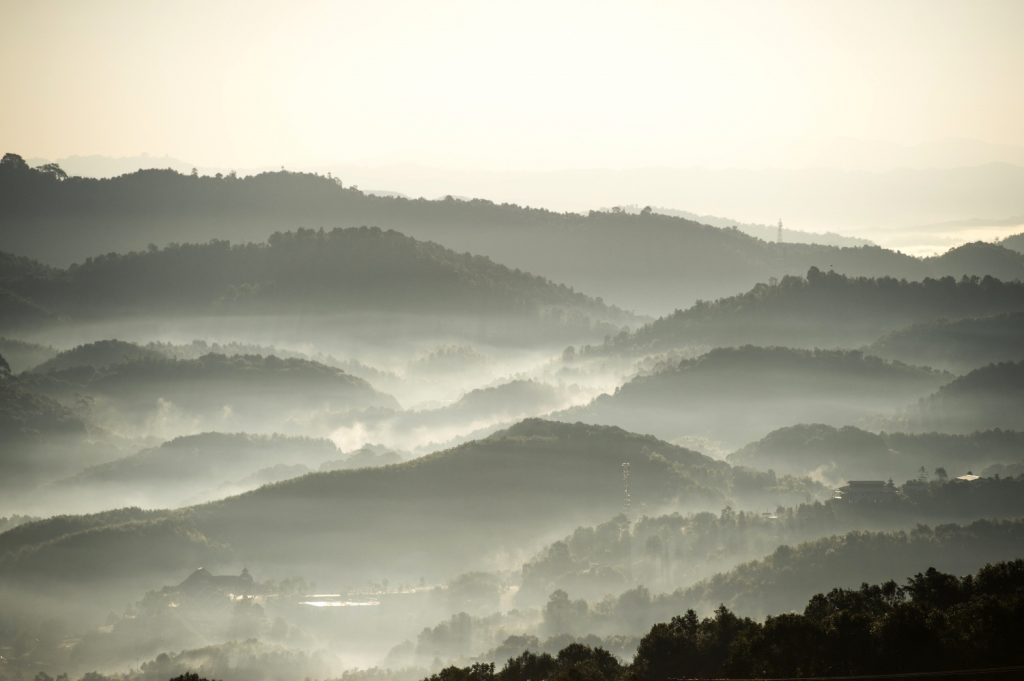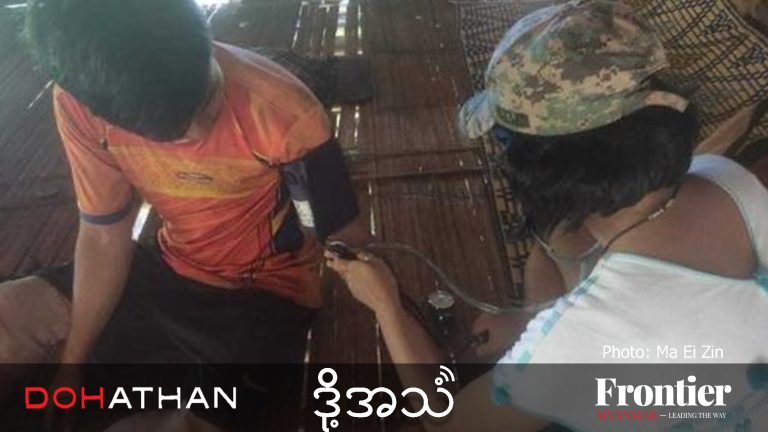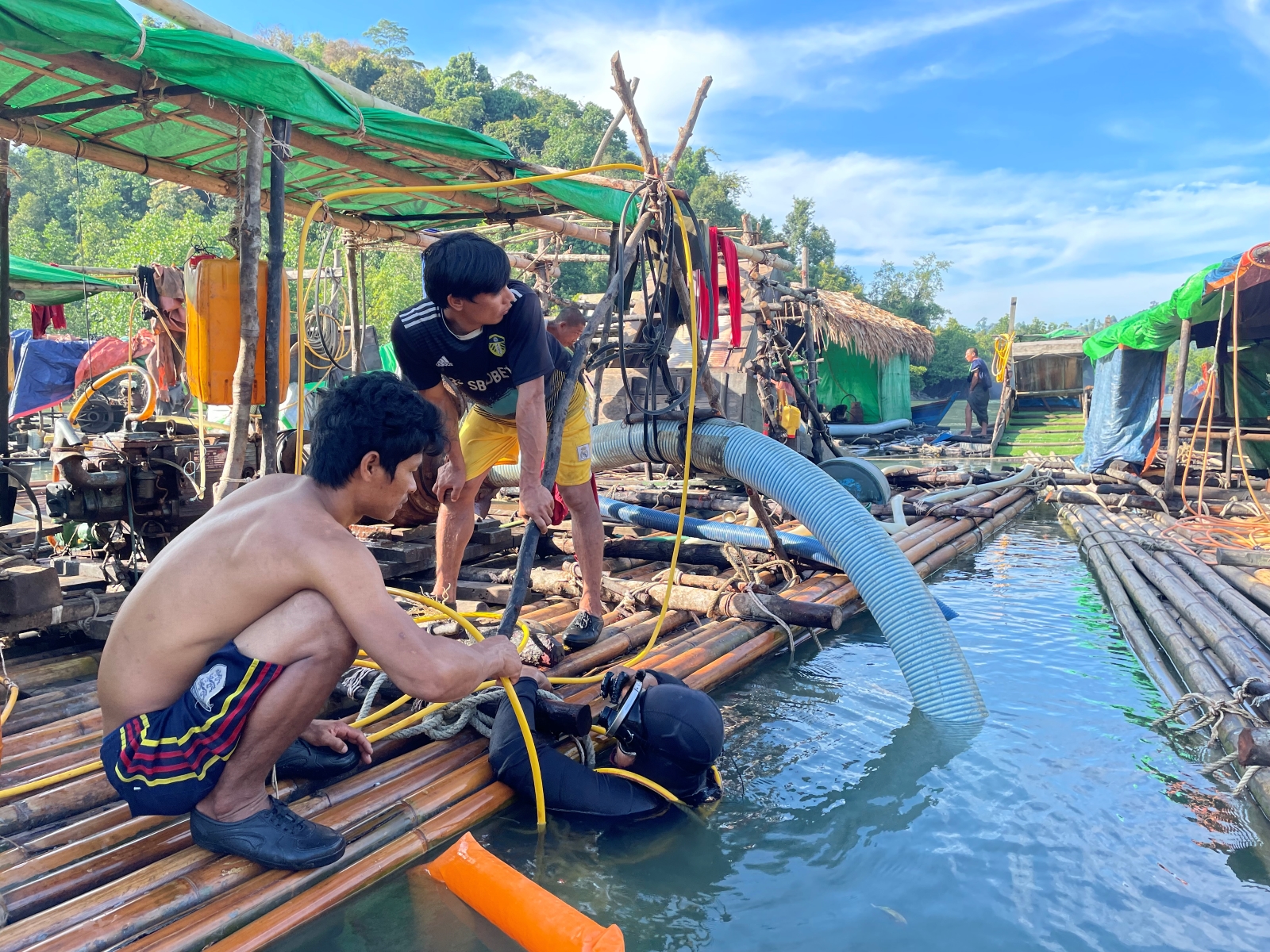By KAUNG HSET NAING | FRONTIER
Residents of the ruby mining town have been shaken by abductions and squeezed by demands for money from armed groups competing for influence in the multi-ethnic area.
The black sport utility vehicle was driving along a road in Mogok, the famous gem mining town in the mountains north of Mandalay, when it abruptly stopped next to a white SUV.
Three men got out of the black SUV and dragged a passenger out of the white vehicle and into theirs before speeding off.
A shocked driver alighted from the white SUV, his mobile phone to his ear, while bystanders gaped in surprise.
The well-executed abduction of U Kyaw Win, the wealthy owner of the SP Bakery franchise, by the Ta’ang National Liberation Army on December 4 took no more than two minutes. The entire thing was captured on CCTV.
“After that incident there were few people on the streets. Everyone lived in fear,” said U Soe Myint of the Mogok Security Assistance Association, who is also the administrator of downtown Mogok’s Shaw Li Wine ward, where Kyaw Win was abducted.
Locals formed the association eight days later to protect people from extortion and kidnapping by non-state armed organisations, which the town’s resident Tatmadaw battalion and police force are seemingly unable to prevent.
Kyaw Win, who lives in the town’s Myoma ward,was released on January 15, after his family contacted the United Wa State Army, Myanmar’s most powerful non-state armed group. The UWSA, which is a TNLA ally, helped negotiate Kyaw Win’s release. It is unclear if a ransom was paid.
Two months earlier, the TNLA had abducted a 53-year-old woman and held her for 10 days, until her family paid a K34 million (US$25,580) ransom.
“Such incidents had never happened in Mogok before; they are a result of armed conflict,” said U Kyi Win, 53, another MSAA member. He said the events have caused some families to flee town in fear.
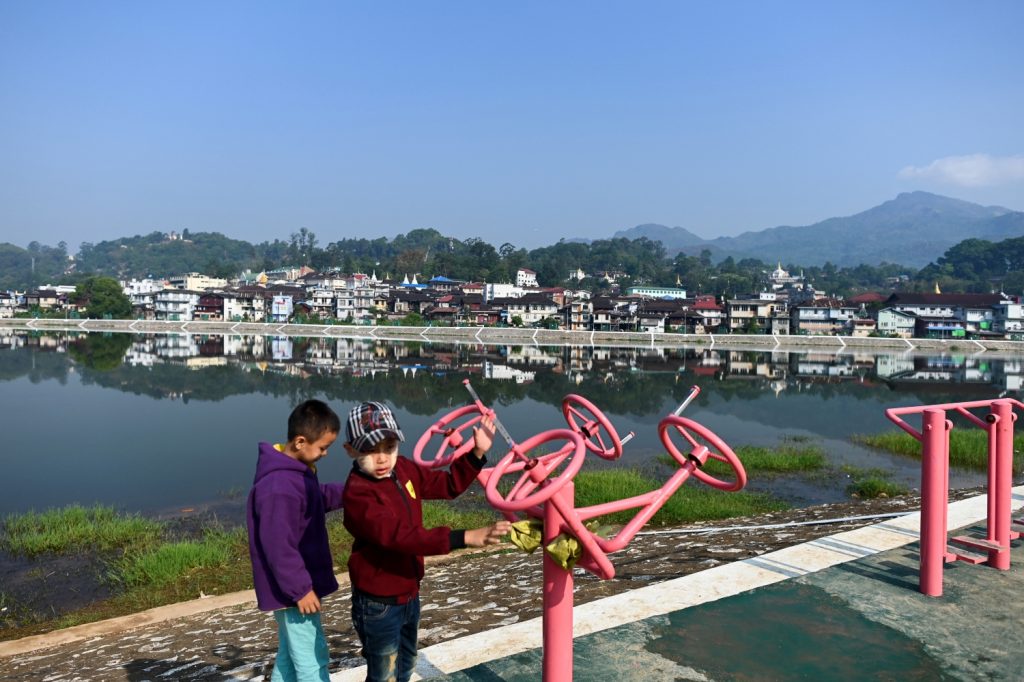
It started with donations
Mogok, which celebrated its 800th anniversary in 2018, has long been known for the quality of its pigeon blood rubies.
Residents of the Mandalay Region town say the protection rackets emerged from donations they began voluntarily giving in 2017 to ethnic armed groups that include the TNLA, RCSS and a rival Shan armed group, the Shan State Progress Party.
U Ye Aung, secretary of Green Mogok, a civil society group that promotes environmental conservation and urban development, said the armed groups claimed the donations were needed to develop the area.
The groups sent text messages with donation requests and issued receipts and certificates to those that gave, Ye Aung said, adding that the requests did not stipulate specific amounts. But Ye Aung said the TNLA’s solicitations turned into demands in 2018, and had turned by October last year into kidnappings for ransom payments.
Frontier could not reach representatives from the RCSS or the SSPP for comment, but TNLA spokesperson Colonel Mai Ai Kyaw denied the group extorts in any way. He told Frontier on January 29 that the TNLA collects protection money in areas where it is involved in fighting “for our ethnic affairs”, and denied it threatens people’s lives for non-payment.
Not all SMS messages demanding money are sent by the TNLA, Mai Ai Kyaw said, and ward administrator Soe Myint said he’s aware of people masquerading as TNLA members and trying to collect money. He said he knows one man from his neighbourhood who sent K500,000 to someone claiming to be from the TNLA by mobile transfer but never received a receipt.
“We send text messages to ask for protection money and if we receive a payment, we send a receipt,” Mai Ai Kyaw said. “If those who pay do not receive a receipt from the TNLA, the demand for payment did not come from us, and those people should not have paid that money.”
It’s hard to determine exactly how much the TNLA has made, since residents are wary of admitting whether or not they’ve ever paid these levies. U Kyi Win, from the Town Elders Assistance Team, said anyone admitting to paying money to the group could be charged under the Unlawful Associations Act for associating with an illegal organisation.
Green Mogok secretary Ye Aung said the TNLA has abducted and held for ransom up to 60 business owners in the town, and that those involved in the lucrative gems trade are the most vulnerable. He and others told Frontier they know of up to K100 million the TNLA has made from demands and kidnappings in a single year, but that the total annual figure is likely higher. His estimates are based on numbers he’s gathered from business owners who have contacted him, but he said many extortion victims were too frightened to say how much they gave. He believes that between 2018 and 2020 the group may have made up to K300 million in this way.
U Naing Moe of the Mogok Human Rights and Justice Association, a civil society group, said the TNLA widened its net late last year and had begun extorting small retail business owners in the town as well.
Ye Aung asked why residents should have to pay protection money to the TNLA when the town is not in an area under their control. He asked what the TNLA is protecting Mogok from.
As elsewhere in the country, Mogok’s economy has been hit hard by the COVID-19 pandemic, but the situation made worse because most of the area’s gem mines have had to suspend operations while they wait for by-laws to the 2019 Myanmar Gemstone Law to be drafted and debated in parliament. With the February 1 military coup having effectively dissolved parliament before its new term was set to convene on the same day, its uncertain when the drafting process will resume.
Naing Moe said if the TNLA asks for protection money or “taxes” and the people do not pay, they are abducted. “This is using weapons to extort money and it’s not fair,” he said.
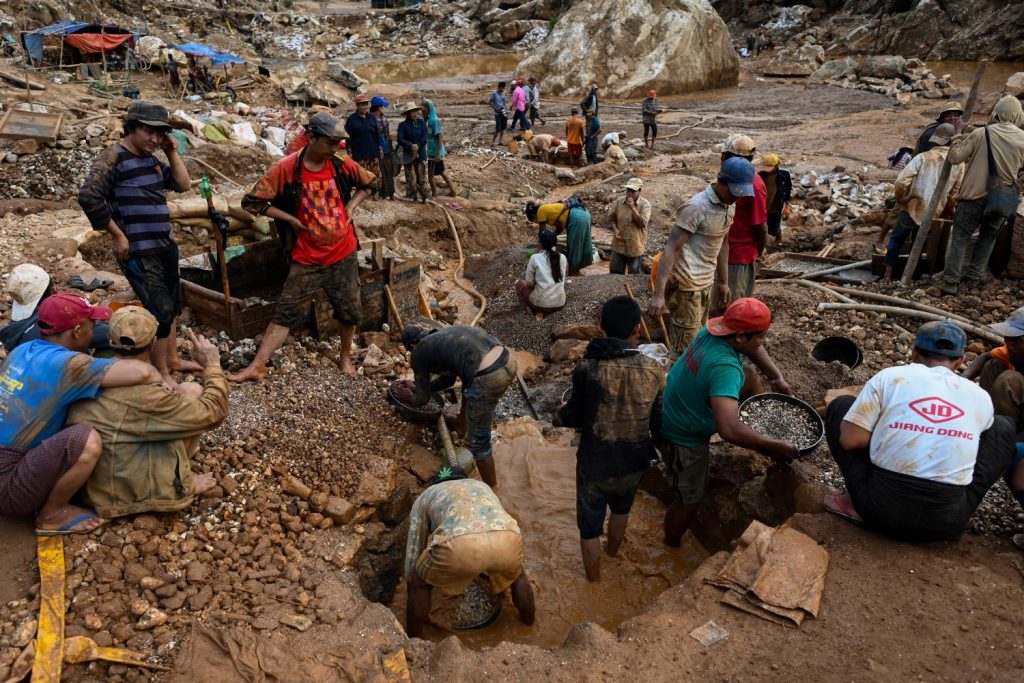
Squandered potential
These TNLA activities are a threat to the town’s future as a tourist destination, U Naing Ngan Kyaw, who was re-elected to represent Mogok in the Pyithu Hluttaw for the National League of Democracy last November, told Frontier on January 28. Naing Ngan Kyaw, who is also known as U Aung Naing, was detained during the coup but was later released.
He said the town, with its scenic location on the western edge of the Shan plateau, needs to develop its tourism sector to become less dependent on gem mining.
Residents say the village of Bernard – a colonial outpost that houses a World War Two cemetery and is known locally as Ywar Thar Yar – and the Ant Phwe mountain were becoming popular domestic travel destinations before the COVID-19 pandemic, but Naing Ngan Kyaw said tourists would be too scared to visit the town now because they know TNLA members randomly stop cars and demand payments.
Ye Aung said the TNLA is straining relations between the Ta’ang (who are known in Burmese as Palaung) and members of other ethnic nationalities living in the town and surrounding villages.
While relations were good in the past, members of other ethnic communities are becoming afraid of the Ta’ang, he said.
Rumours have circulated in town that, in the absence of adequate security from the Tatmadaw, some residents are reaching out to other ethnic armed groups to end the TNLA’s protection racket, but Naing Ngan Kyaw dismissed this as hearsay.
Since Kyaw Win’s January 15 abduction, kidnappings and extortion seem to have halted in Mogok. Ye Aung said about 15 families fled Mogok after the incident but that most have since returned.
The TNLA’s Mai Ai Kyaw said it was hard to say whether there would be fighting in the hills around the town again, and civil society groups in Mogok say security and prosperity ultimately depends on a resolution to the peace process, which the TNLA remains outside of.
The elected MP Naing Ngan Kyaw said he hopes all armed groups will respect the residents’ wishes to live and work without fear of extortion or violence.


